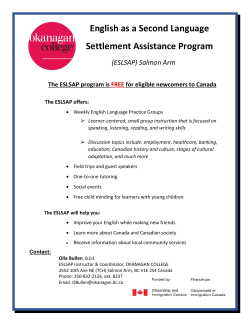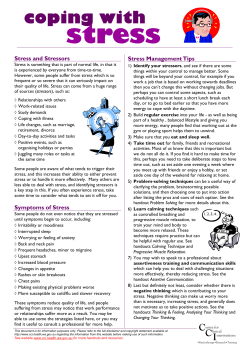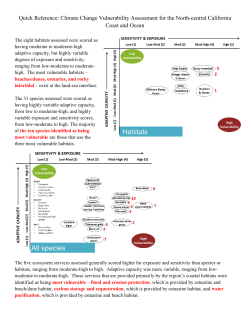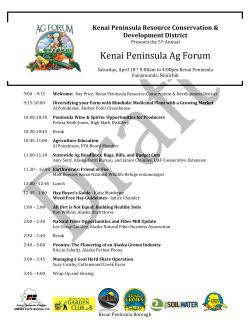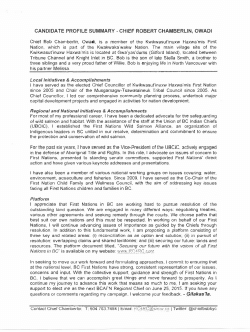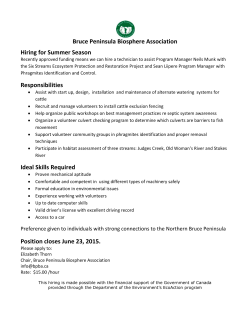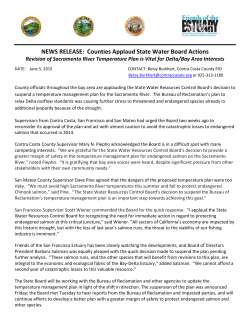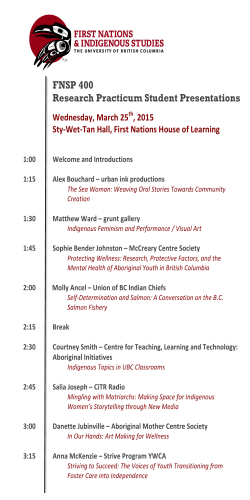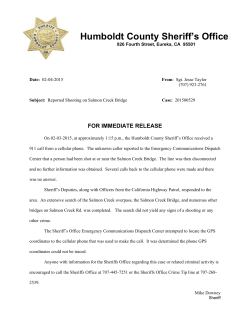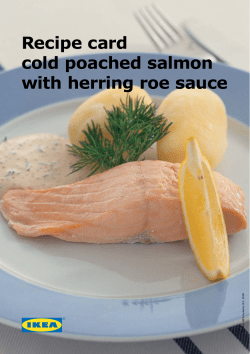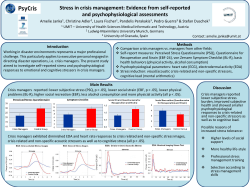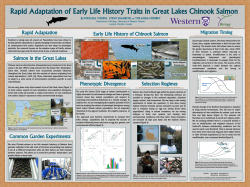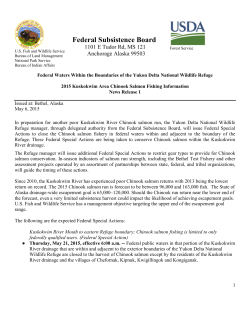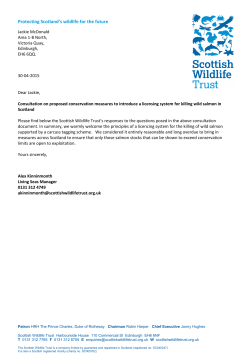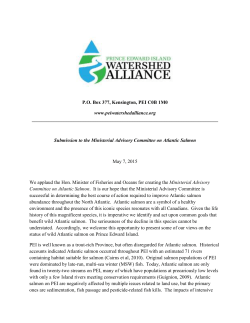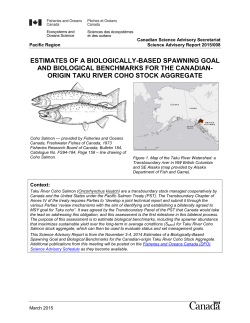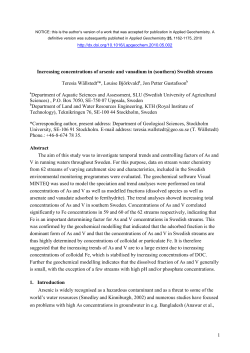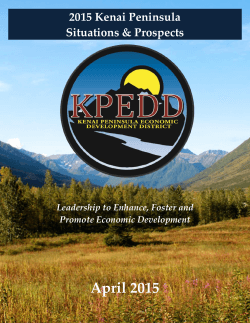
Rising temperatures in Kenai`s salmon streams
Salmon Stressors: Rising Temperatures in Kenai’s Salmon Streams Sue Mauger, Science Director Cook Inletkeeper Salmon Stressors What are the major climate-related stressors? How will they impact Kenai Peninsula streams? What can we do to build resilience? Climate-related stressors Changes in air temperature and precipitation patterns affect: Water temperature Water volume Flood frequency/intensity Nutrient pathways 20 non-glacial Kenai Peninsula salmon streams Effect of warm water on a cold water fish: • reduced survivorship of salmon egg and fry • reduced growth rates due to increased rates of respiration and metabolism • premature smolting and shifts in emigration timing reducing marine survival • greater vulnerability to pollution due to increased toxicity of some organic chemicals and metals, including mercury • greater risk of predation and disease 68oF 59o 55o sensitivity 0.75 55oF average July water temperature sensitivity average July water temperature sensitivity average July water temperature sensitivity average July water temperature sensitivity average July water temperature Summary of Water Temperature Impacts Sensitive non-glacial streams are likely to continue to warm and increase thermal stress to salmon (40%) Cold insensitive streams will likely remain favorable for salmon and continue to provide important cold-water habitat in the decades ahead (45%) Glacial systems will provide cold water during warm months but will likely contribute increased turbidity Photo: Kathy Sarns Irwin Carbon-related stressors Increase in carbon will affect: Ocean acidity Courtesy of David Littschwager/National Geographic Society Photo: Alan Parks Summary of Additional Impacts Less water storage in winter Fish passage issues Increase scour, decrease egg survival Less marine derived nutrients to feed the watershed Forest health and changes in vegetation may alter nutrient pathways into streams Salmon Stressors What are the major climate-related stressors? How will they impact Kenai Peninsula streams? What can we do to build resilience? What can we do? Reduce non-climate stress Maintain stream-side vegetation for shade Maintain groundwater connections Maintain wetlands for water storage Maintain/restore culverts for fish passage Limit invasive species expansion Prioritize Develop local information Coordinate efforts Way of Life Food Security Identity Thank you!
© Copyright 2026
